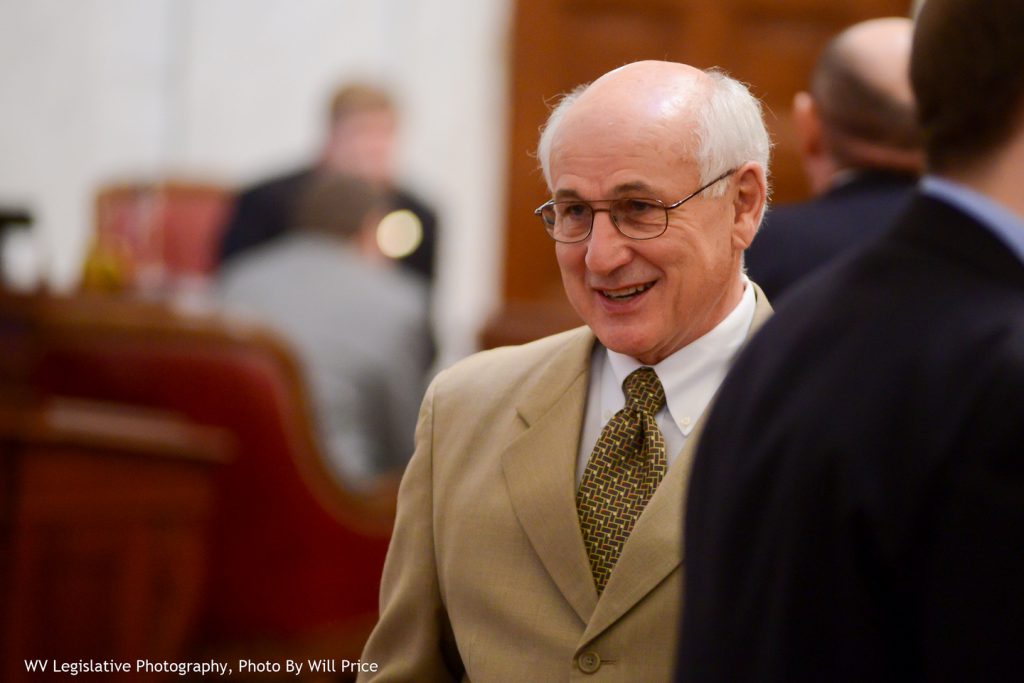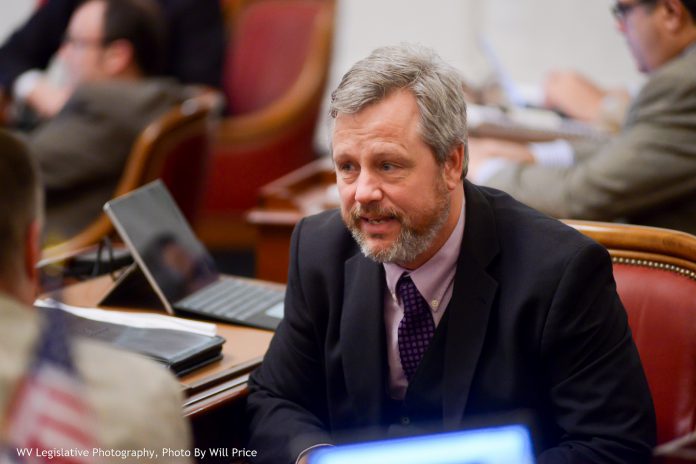Fiscal Note Shows Projected Revenue Gap with Repeal of Income Tax
The Senate Select Tax Reform Committee has taken a significant hit this week to a revolutionary tax plan they have been developing for the past month.
The tax reform bill, SB 335, would repeal the personal income tax over the course of four years and replace it with a general consumption tax that broadens the consumer sales tax by an additional two percent, getting rid of most sales tax exemptions.
However, as shown in a fiscal note detailing the financial impact of the bill to the state, the general consumption tax would not be enough to bridge the revenue gap.
Mark Muchow, deputy secretary of the state Department of Revenue, said he found that the proposed plan could result in a nearly $870 million drop in tax collections over the four-year phase out period.
Lead sponsor of the bill and Chair of the Tax Reform Committee, Senator Robert Karnes, R-Upshur, said this discovery does not come as a complete surprise or signify the bill’s failure.
“Nothing starts the way it finishes,” Karnes said. “What we do now is we go to work to figure out how the bill needs to be adjusted in order to meet the revenue needs of the state.”
Muchow acknowledged that he did not have the time or resources to yield completely accurate results for the fiscal note, which contains many variables that he said would require more time to study, such as how border counties might react to lower consumption tax rates in neighboring states.
Some believe this projected drop in funding, however, is enough to show that the state cannot handle a complete repeal of the income tax yet.
Senate Minority Leader Roman Prezioso, D-Marion, said the Legislature needs to focus on finding new sources of revenue and revamping infrastructure before it considers any tax plans that risk widening the budget gap further.

“We all realize we have a problem: our economy is not in the greatest shape,” Prezioso said. “So we’ve got to diversify our economy, and in order to do that, we’re going to have to have some money up front to get back in the ballgame. We’re going to have to get ourselves into a position for playing.”
Prezioso said this is the time for legislators to come together to form an effective tax strategy, instead of rushing to make a major, possibly “disastrous” change for the state.
“Let’s not draw a line in the sand,” Prezioso said. “Let’s study it. Let’s come to a mutual agreement.”
Karnes, however, believes enough time has been taken to try and study fiscal options for the state.
“We’ve spent the last two years studying in the Tax Reform Committee,” Karnes said to the committee. “If two years’ worth of study isn’t enough to get going, then I guess we can never change anything.” He said the Legislature has been studying major tax reform for the past 30 years overall, and nothing has been implemented since the 1980s.
Senate President Mitch Carmichael, R-Jackson, is supportive of Karnes’s initiative and said he shares his “vision” to eliminate the income tax in West Virginia.
Before the Tax Reform Committee began considering SB 335, Carmichael assured the members that they would be able to finally develop and send out a promising piece of legislation.
“I fundamentally believe that this is the most important committee of this session,” Carmichael said. “This committee is about transforming the state.”
As the Senate committee starts to revisit the bill in hopes of getting rid of the revenue gap it creates, the House of Delegates is preparing to introduce its own balanced tax reform bill, which would simply make adjustments to the income tax rather than repeal it outright.
House Finance Chairman Eric Nelson, R-Kanawha, said the House’s bill is based on discussion and research from Joint Committee on Tax Reform meetings in 2015 and 2016.
“A year or so ago, the Joint Tax Committee received a report from West Virginia University’s John Deskins on ways that we can reduce the categories of our personal income tax, if not go to a single bracket,” Nelson said. “I believe you’ll see legislation on that this week as a potential alternative.”
Nelson introduced HB 2934 as its lead sponsor in the House Friday, March 10, which would eliminate the tax brackets under the personal income tax and change the rate of the tax.
The Senate Committee on Tax Reform will meet Saturday, March 11 at 3 p.m. in room 451M at the Capitol.
Once SB 335 is approved by the select committee, the bill will be referred to the Senate Finance Committee.
The bill currently has 18 co-sponsors aside from the lead sponsor, Karnes. Those co-sponsors include Senate President Mitch Carmichael and Senators Mike Maroney, Ronald Mullins, Mark Maynard, Ryan Weld, Charles Clements, Ryan Ferns, Sue Cline, Randy Smith, Dave Sypolt, Mike Azinger, Chandler Swope, Craig Blair, Ed Gaunch, Tom Takubo, Greg Boso, Kenny Mann and Charles Trump.

